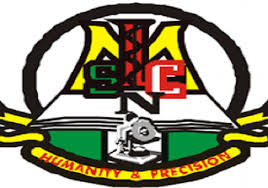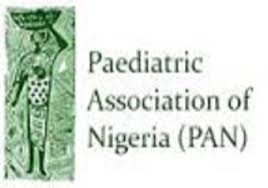A victim of the twin suicide blasts at Kano Central Mosque in the accident and emergency ward of the Nasarawa Specialist Hospital, after he was attended to by a doctor on November 28, despite the health workers strike.
Health workers under the Joint Health Sector Union (JOHESU) who began a strike mid-November following an October 16 call for industrial action by the National Union of Allied Healthcare Professionals (NUAHP) to protest government’s refusal to honour previous agreements on a series of labour issues say they will continue the action until their demands are met.
JOHESU members consist of nurses, pharmacists, laboratory technicians, matrons, medical cleaners, security as well as all other health workers except doctors.
Doctors under the Nigerian Medical Association have been hard pressed to keep hospitals running, even though the absence of more than 80% of hospital staff has left patients in limbo.
Health workers in Kano were exempted from the action after their union said its members were needed to attend to victims of the bomb blast at the Kano Central Mosque, which killed dozens and injured many.
Elsewhere in public hospitals in Abuja, patients have only been able to get skeletal services as laboratories and pharmacies are shut with empty nursing bays.
President of NUAHP, Felix Faniran, told Daily Trust that the workers had made several overtures to end the strike but no resolution had been forthcoming, which required government to issue circulars on accrued wages, stilted advertisements for the position of hospital chief medical directors, and reversal of the appointments of deputy chairmen of medical advisory committees.
“We have had several meetings with government but those meetings were not productive,” Faniran told Daily Trust yesterday.
Government’s refusal to budge has strengthened the striking unions’ resolve to continue the strike.
Faniran said they told government negotiators not to “call us to any meeting until they have something substantial they want to give us.”
But both sides are scheduled for another meeting on Monday, December 15, and the unions are set to attend with the hope of seeing an improvement.
Meanwhile, health workers have welcomed the presidential assent to the health bill, calling it “good news.”The law “ought to have been in place since post Independence,” said Faniran, noting that all other health legislation should derive from it.
In Nasarawa State, patients continue to grumble as the strike bites harder.
A mother whose child was on admission before the strike was allowed to stay but she complained that her child hardly gets any attention with doctors reporting for work only at the biggest state owned health facility, the Dalhatu Araf Specialist Hospital in Lafia.
Avre Attah, the branch chairman of the union at the hospital said members were complying well to implement a total strike action.
“Implementation of this strike is total here,” Avre said. Hospital spokesperson, Deborah Dangara, said the strike had grounded even emergency services.
The strike is only partial in Adamawa State, our correspondent reports. While it is on at the Federal Medical Centre (FMC) Yola, normal activities are on in health institutions owned by the state government.
The Information Officer of the FMC, Adamu Dodo, said only medical doctors are attending to patients with interns and NYSC members assisting.
In Lagos, representatives of the Joint Health Sector Union (JOHESU) yesterday disrupted medical operations in major government hospitals as doctors were prevented from attending to patients. The atmosphere in general hospitals across the state was pensive as patients were referred to private hospitals.

Comrade Olowo Gemo, an executive member of JOHESU, LASUTH chapter, said they joined the strike due to a memo sent to them from the federal council of the union. He said the national leadership of the union gave them an ultimatum to join the strike which was communicated to the hospital management and the state government.
Our reporter who visited some hospitals in Kaduna observed that at the National Ear Care Centre and Federal Neuropsychiatric Hospital, only a few patients were seen as doctors attended to only emergency cases. An officer at the Ear Care Centre said:
“Doctors are rendering skeletal services and we also attend to emergencies but no admission and no surgeries. In some cases of emergency, we call the health workers if need be and they have been co-operating,” he said.
A patient, Aliyu Usman, commended the doctors; saying, “this is my second time of coming to the hospital since the strike began and they have been attending to me.”
Also at the Federal Neuropsychiatric Hospital, the doctors attended to only outpatients and emergency cases but there was no patient on admission.
The Secretary of Joint Forum of Unions and Association of National Eye Centre in Kaduna, Comrade Lawal Garba, told our reporter that the strike had crippled clinical services in the hospital.
In Taraba State, activities were paralysed at government hospitals. Checks at the Federal Medical Centre and the Specialist Hospital in Jalingo showed that only a handful of medical personnel rendered skeletal services. Many patients now patronise private hospitals due to the strike.
Chairman of Joint Health Workers Union at the FMC Jalingo, Pharm. Godfrey Lamle, said members of the union had largely complied with the strike, adding that government instead of resolving the issue is rather frustrating the health workers.
In Ekiti State the leadership of the Joint Health Sector Unions (JOHESU) directed its members in the state to resume work immediately and ignore the circular asking them to join the strike.
It was gathered that the union which had earlier directed its members to join the strike on Monday suddenly turned around after Governor Ayo Fayose intervened through the Head of Service, Dr Gbenga Faseluka and the Chief of Staff, Chief Dipo Anisulowo.
A visit by our correspondent to the Ahmadu Bello University Teaching Hospital (ABUTH), Shika, Zaria yesterday showed that all the laboratories, scanning centres and other essential departments of the hospital were locked yesterday.
However, doctors were seen attending to some out-patients who visited the hospital for assistance.
A pregnant woman said: “Because I had an emergency, I was attended to by the doctors on ground.”
The Chief Medical Director of the hospital, Professor Lawal Khalid, said the management was hopeful that the strike would be called off soon.
At the University College Hospital (UCH) Ibadan, members rose from a congress last week where the various unions involved in the struggle reiterated commitment to enforce the strike until their demands are met.
Daily Trust gathered from patients in Jos yesterday that the strike was causing delay in delivery of medical services.
Our correspondents observed a number of doctors attending to patients, especially at the Jos University Teaching Hospital (JUTH) while some student doctors were seen around the hospital handling tasks normally carried out by the striking health workers.
Chairman of JUTH chapter of Nigerian Union of Allied Health Professionals and Secretary of Joint Health Sector Unions, Comrade Obisesan Oluwatuyi told our correspondents that health workers in states and local governments had been called to join the strike.
At the Minna General Hospital, only doctors and principal officers were on duty. Same thing in Kontagora and Suleja General Hospitals.
ABUJA: Training Schedule for Basic Life Support BLS, Pediatric Advanced Life Support (PALS), Advanced Cardiovascular Life Support ACLS, First Aid, CPR, AED
PORTHARCOURT: Training Schedule for Basic Life Support BLS, Pediatric Advanced Life Support (PALS), Advanced Cardiovascular Life Support ACLS, First Aid, CPR, AED
LAGOS: Training Schedule for Basic Life Support BLS, Pediatric Advanced Life Support (PALS), Advanced Cardiovascular Life Support ACLS, First Aid, CPR, AED
.jpg)



